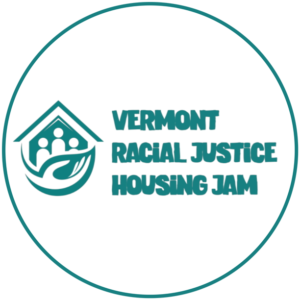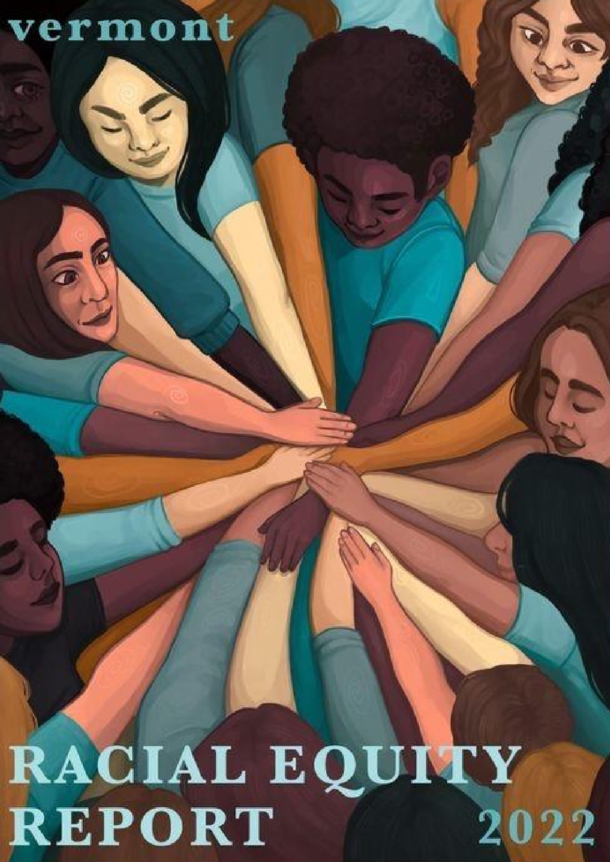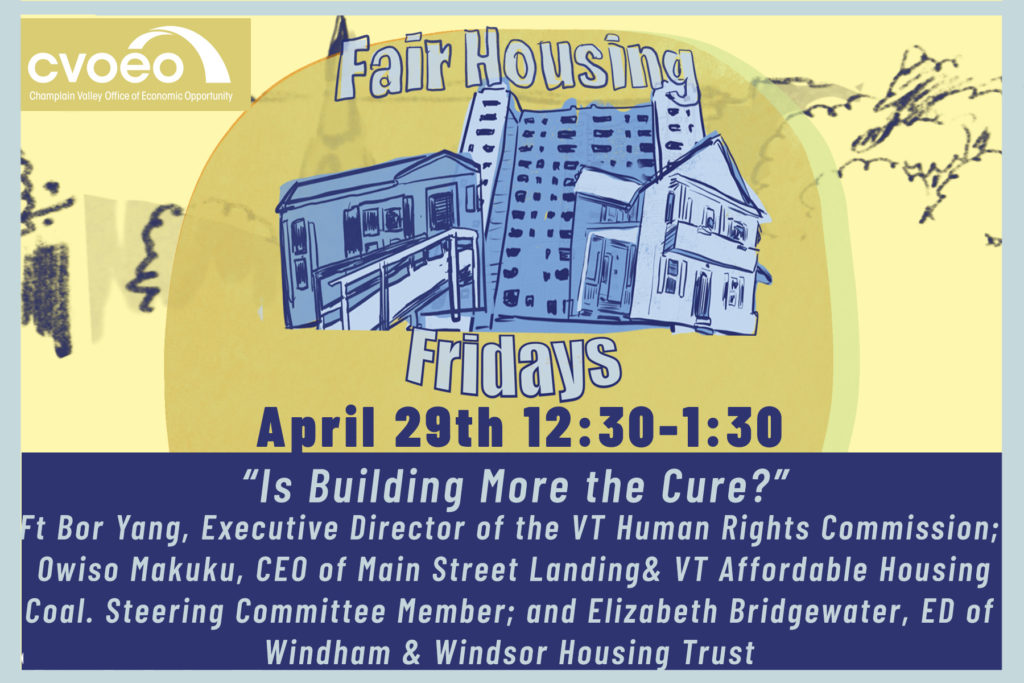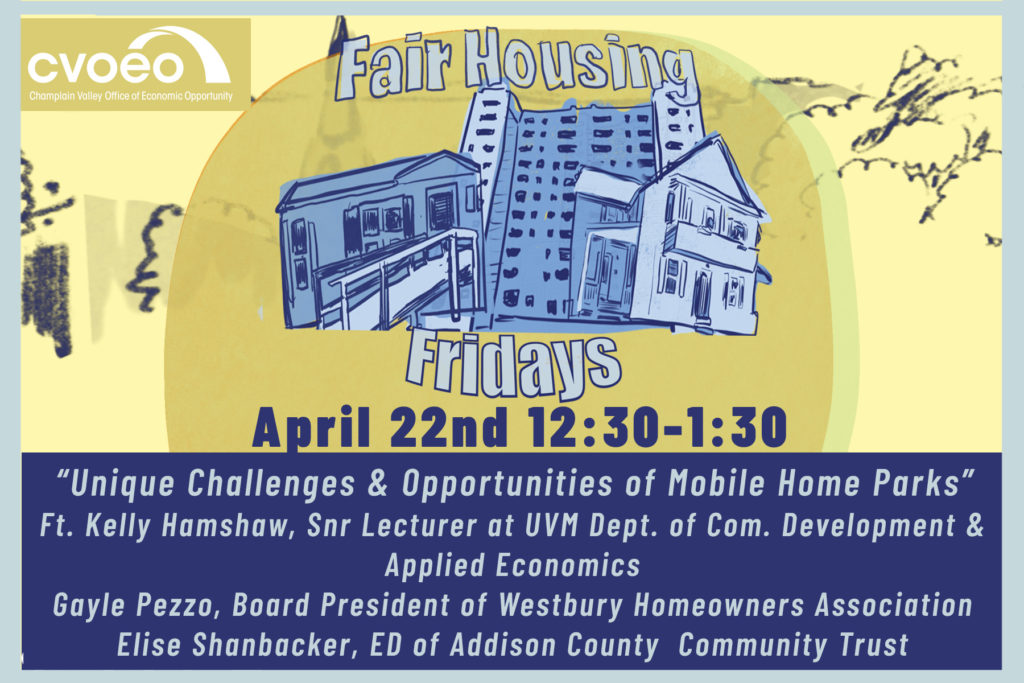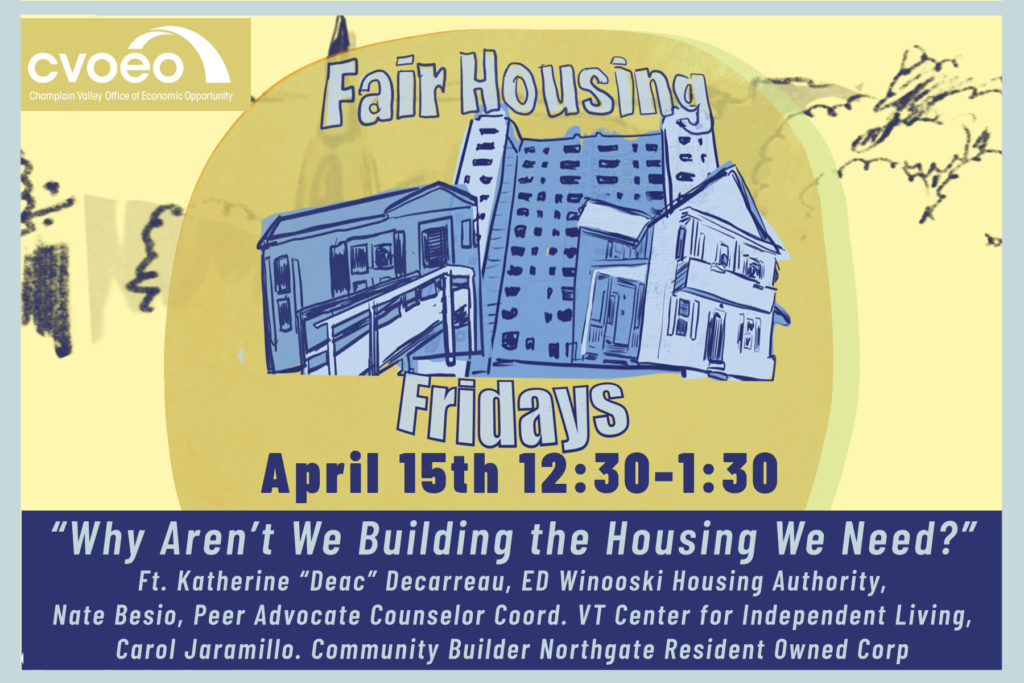CVOEO’s Fair Housing Project is excited to announce our newest initiative, the Striving for Equity Project.
Hello readers, Corrine here. I am thrilled and honored to introduce myself as the new Striving for Equity Project Manager at CVOEO’s Fair Housing Project.
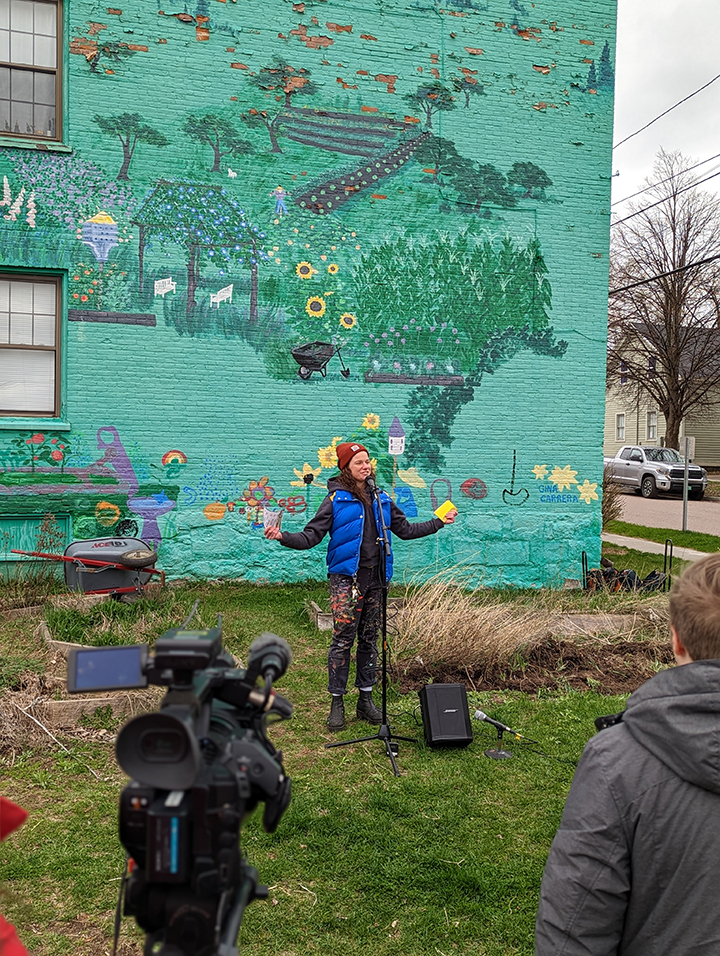
I joined CVOEO’s Fair Housing Project at the tail end of 2019, but I have had the pleasure of working with CVOEO’s Fair Housing Project since my entry into housing advocacy back in 2015 at the Vermont Affordable Housing Coalition. Together with program director Jess Hyman, and other staff, volunteers and partners, we have immensely expanded the Fair Housing Project’s education and outreach activities and ensured that housing equity and choice is an integral part of CVOEO’s statewide Housing Advocacy Programs work.
If you are a frequent reader of our blog, you are probably familiar with the ways that Fair Housing Month education has expanded. Our workshops, often lead with Vermont Tenants, have evolved to new formats, including online and expanded curriculum, as well as translated live workshops. We were key players in developing the Housing Ready Toolbox in partnership with Vermont Housing Finance Agency and VT’s Department of Housing & Community Development, and have since started the Housing Demystifies series. In 2021, we spearheaded a year-long initiative to survey and support housing committees, and we overwhelmingly heard the need for more opportunities to connect as community-based housing advocates across the state, which inspired this new project.
Striving for Equity is a continuation and expansion of the Thriving Communities initiative, which seeks to increase awareness about the importance of inclusive, affordable housing and support Vermont municipalities in their efforts to Affirmatively Further Fair Housing. It is funded through a HUD Fair Housing Initiatives Program (FHIP) grant. Our ongoing Fair Housing activities will continue including consultation and referrals for people experiencing housing discrimination, fair housing trainings for housing and service providers and municipal officials, and know your rights workshops and outreach for community members.
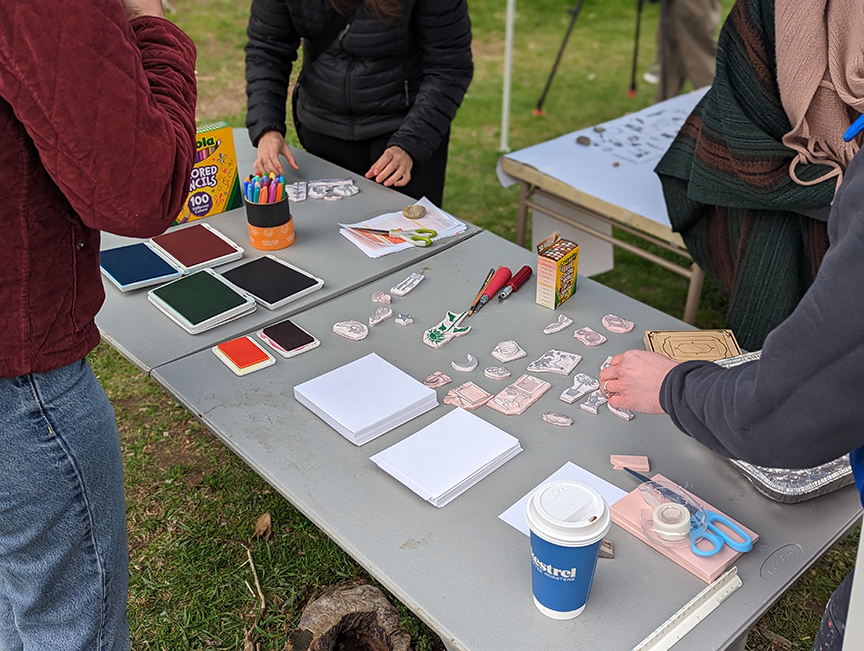
A Brief Project Summary
As CVOEO’s Striving for Equity Project Manager, I will be spending this next year supporting local housing committees and promoting avenues for citizen housing advocacy so that across the state, we increase the amount of inclusive, affordable housing and meet our local housing needs. We recognize that in order to further equitable access to housing, the voices of the people who have been denied equal access to housing need to be centered in our development processes, but for many these processes may be hard to understand and access. I will look to each of you and our partners across the state to identify what barriers our community members face to engaging with their regional housing advocacy efforts, and to develop community-based housing advocacy resources. Our goal is to connect and support local housing committees, foster new connections with community-lead housing advocacy efforts, and enable them to access vital resources and foster meaningful connections with one another.
Of course, this work is a part of CVOEO’s Fair Housing Projects’ greater mission of furthering Fair Housing and equal opportunity in housing. As such, my focus will be in ensuring paths for the people most impacted by our housing shortage to make their needs heard, especially those who have historically been barred access to Fair Housing.
What to Expect
So how will we meet these goals? To clarify our project goals, we have simplified our outcomes and deliverables to fall under two project categories: developing a statewide advocacy toolkit to enable community-based housing advocacy efforts and supporting the development of a statewide housing committee network.
Outcomes (Or, What We are Working Towards):
Our goals for this project include:
- Community members learn about housing-related issues and have the resources and support to take action on them.
- Community members have tools and resources to overcome obstacles to upholding their fair housing rights.
- Existing housing committees have access to fair housing and housing equity resources, planning tools for inclusive, affordable housing, and are better connected to each other for sharing successes, challenges, and best practices related to promoting equity and justice in housing.
Deliverables (Or, How We Will Get There)
To help us reach our goals, we will be developing a few key tools with feedback and input from the housing groups we work with. They include:
- A user-friendly webpage with simple primers on various topics, including housing systems, social justice, housing equity, and community leadership and advocacy tools. This webpage will be accompanied by related outreach materials.
- List of housing committees that receive fair technical assistance and support, and a report on progress related to the support they receive.
- Housing committee gatherings to facilitate collaboration and knowledge sharing.
Timeline
July – August:
Since this is a year long project, we have an ambitious (but ever-adapting) timeline. We have already begun our community-based outreach, with our first housing committee convening on the calendar for Wednesday August 23rd, at 5pm. If you are a housing committee member, we hope to see you there! You can let us know you will be attending by filling out this short survey and by registering here. These early conversations are going to set the rhythm for how often we meet, where and how we meet (regional? statewide? in person? virtual?), and what topics are most generative to fueling the work of our community housing advocates.
September – November
Starting this September, we will really start engaging community-based groups and housing committees to help develop and imagine what framework would be most useful for every day people to advocate for housing, and what tools we need to make sure are included in that. If you aren’t sure you are a “community-based group” doing housing advocacy, or you are interested in plugging into one, please reach out. We need more voices in the housing advocacy space, especially those who are most impacted by our current housing shortage. Let us help you find your footing in the movement.
December – February
We are, of course, going to continue our regular meetings with housing committees and community-based housing groups, providing trainings when appropriate, and connecting these teams to resources that will assist their mission. In December we will also start fabricating our outreach tools that will broaden the reach out the housing advocacy resource created through this work.
March – May
Our project wraps up June 1st, which means our final months of the project are dedicated to evaluating and revising the tools we create in this work.
Final words
I am genuinely looking forward to meeting each one of you and working together towards our shared mission. Please feel free to reach out to me at cyonce@cvoeo,org or 802 660 3456 X110. I am eager to hear your insights, suggestions, and ideas for making a lasting impact through this project.
Lastly, thank you as always for continuing your dedicated work to promote inclusive and Fair Housing. I am grateful to be a part of this rich, ingenuitive, and compassionate community, and always learn so much from you all when we work together.




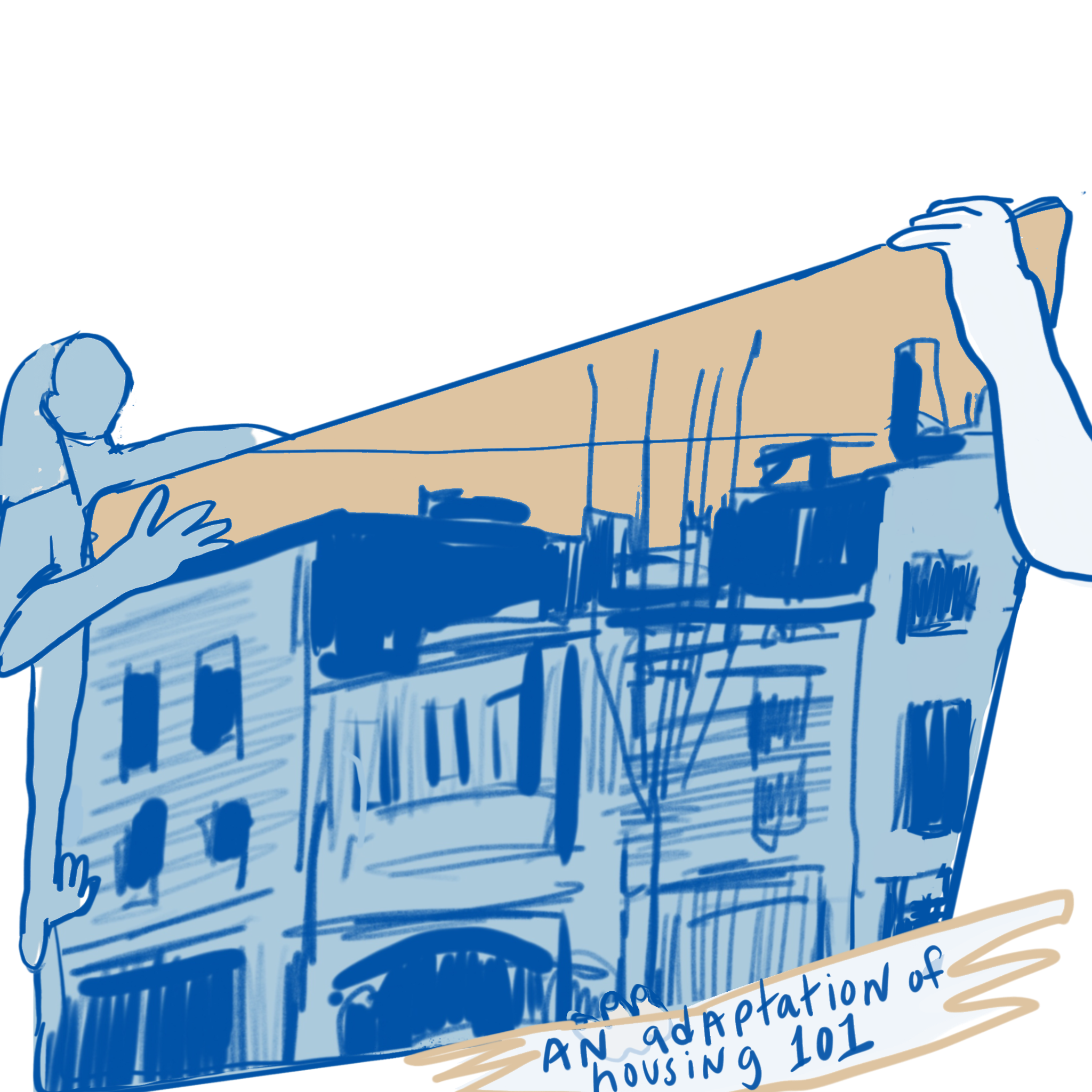

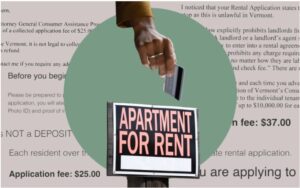
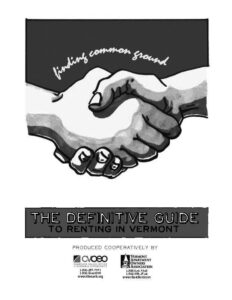 The Definitive Guide to Renting in Vermont
The Definitive Guide to Renting in Vermont
 A group of Vermont housing organizations is hosting a
A group of Vermont housing organizations is hosting a 